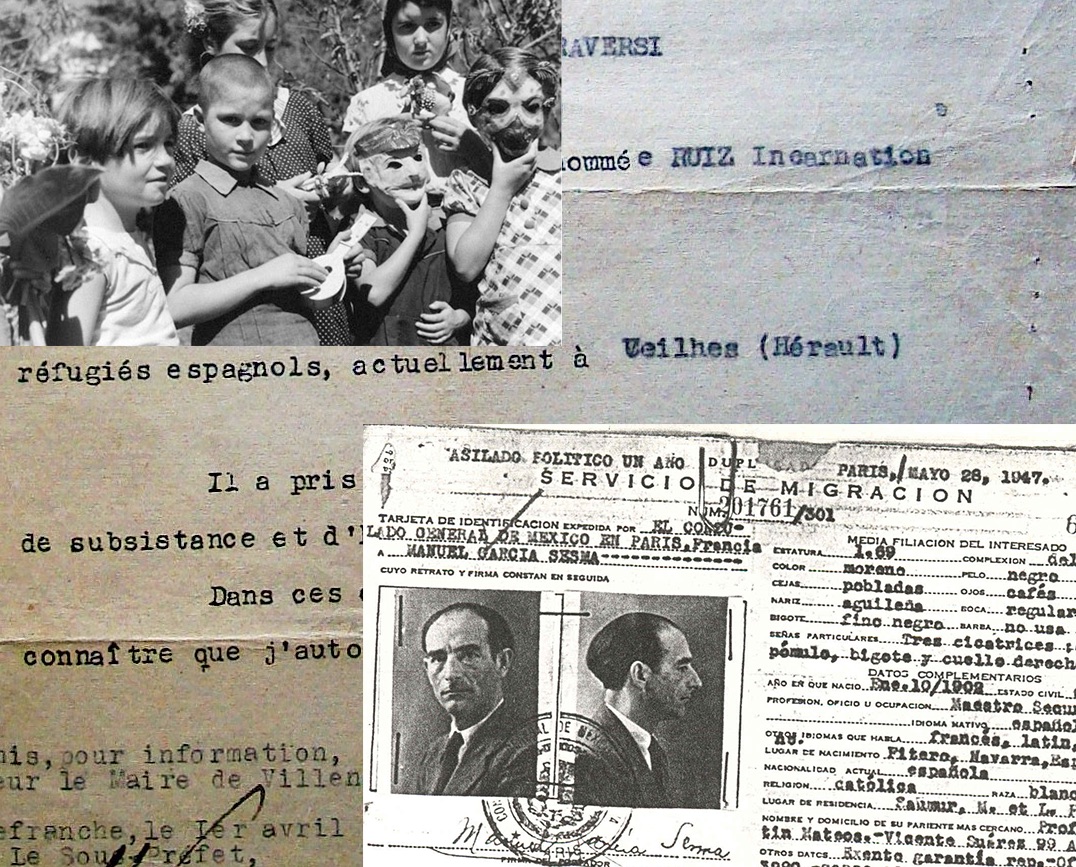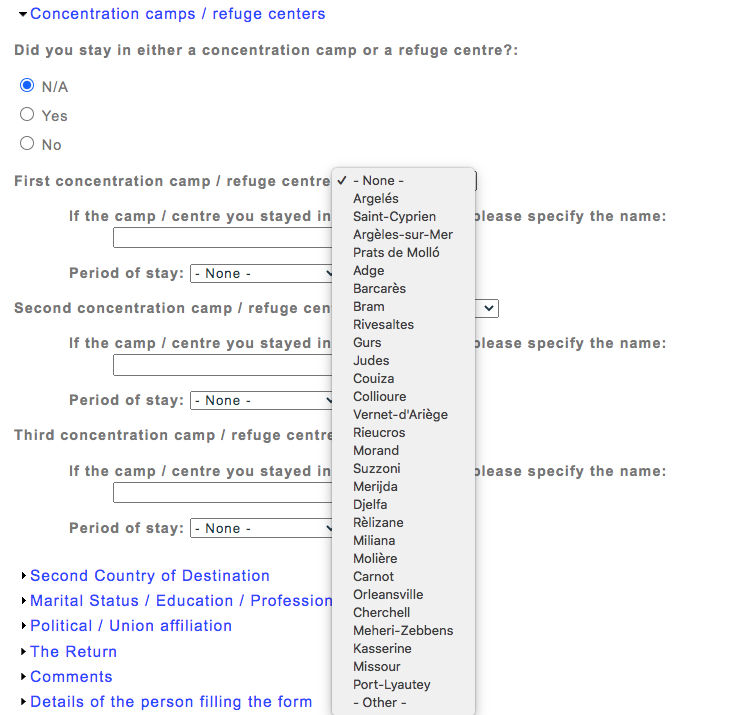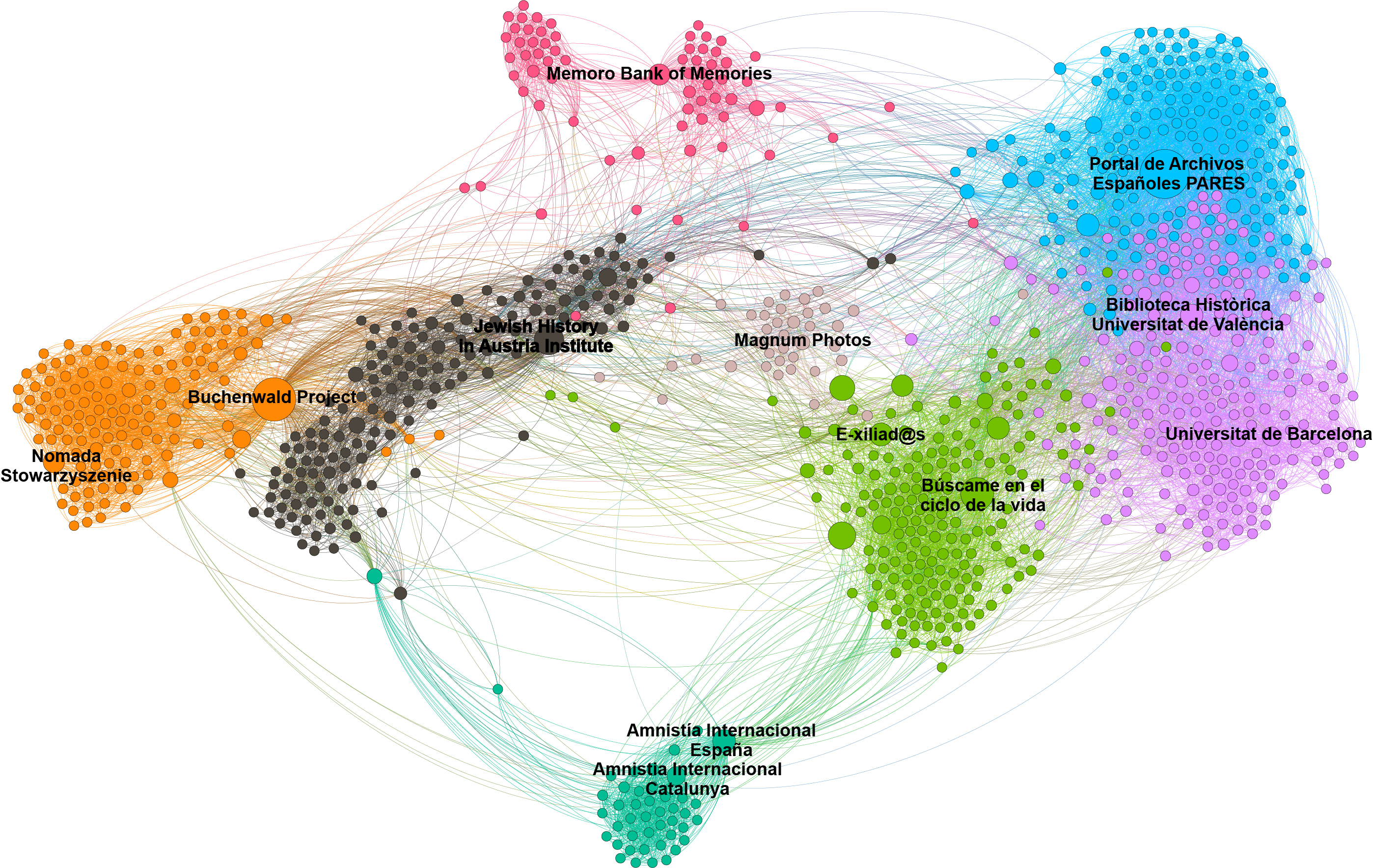1. Abstract
The Spanish republican exile was the result of the Republican defeat in 1939 by the Francoist army, led by the general Francisco Franco. Nearly half a million-people had to go into mass exile during the months of January and February, through the French border crossings. Many other exiles did so, months later, from Alicante to the North African coasts. These places of destination were, in most cases, places of passage to successive destination countries in Europe and, especially, in Latin America. The international nature of this historical event means that there is currently a large number of personal files scattered in different places around the world. In order to recover these stories, the e-xiliad@s project was conceived in 2009, with a Digital Humanities and Public History perspective: www.exiliadosrepublicanos.info. It is an crowdsourcing project that, through a multilanguage digital platform, retrieves unpublished documents about the anonymous exiled. From the research point of view, the privileged target audience is composed by relatives and friends of the exiles and those interested in the subject. This initiative funded twice (2009 and 2011) by the General Directorate of Migrations of the Spanish Ministry of Employment and Social Security, uses a methodology created ad hoc to obtaining data based on public participation from citizen science. That is, the content is generated on-line by the public at an international level and coordinated by a scientific specialist. For almost a decade, this crowdsourcing project has been developing an online public engagement strategy for public participation based on open data, supported by a custom digital platform and its digital social networks, with more than 1.500 followers. At this stage, the project recovered around five hundred unpublished archives among photographs, memories, official documents, letters and interviews, that comes associated with about two hundred completed exile records. The vast majority of these data are public, thanks to the informed consent of the author.
 Figure 1. Examples of documents and photos provided by relatives of exiles registered on the project platform and collaborators.
Figure 1. Examples of documents and photos provided by relatives of exiles registered on the project platform and collaborators.
At technological level, e-xiliad@s has been built using Drupal 6 LTS (Long Term Support) with a MySQL database. The technological solution answer the need of the internal survey form (figure 2) that has been created using a specific data model connected with a strategic communication plan, that serves to get data online via user’ confidence with the project and to stimulate his/her family memoir.
 Figure 2. Detail of the internal form to be filled
Figure 2. Detail of the internal form to be filled
As lesson learned, the need to maintain a technology that is getting older without official support (Drupal); the management of a project social network community continuously growing; and the spamming problem due to the project popularity within the republican exile community (more than 11.000 spamming users) are questions that we are trying to solve. Despite this, E-xiliad@s acts as a digital identity place for those connected to this topic and as a space that informs society, with scientific rigor, from the field of Digital Public History. Currently there are six large online social network communities that move much of the information on the subject of Republican exile and the Spanish Civil War, among which is the e-xiliad@s project with its social networks (Facebook: @exiliados.republicanos and Twitter: @exiliadas). They play a significant role at the national and international level regarding the recovery of historical memory, due to the quantity and quality of the information it offers (figure 3).
 Figure 3. Graph analysis that represents the first and second level connections of the social networks of the E-xiliad@s project, which is represented in the community in green.
Figure 3. Graph analysis that represents the first and second level connections of the social networks of the E-xiliad@s project, which is represented in the community in green.
CREDITS:
This contribution has been funded by the research project, with title: Análisis de la Participación Pública en la investigación histórica desde el ámbito de la ciencia ciudadana (Co-Historia), funded by the Programa Operativo FEDER 2018, Universidad de Granada, Ref. E-HUM-507-UGR18. Principal Investigator: Lidia Bocanegra Barbecho.
BIBLIOGRAPHY:
Bocanegra Barbecho, Lidia, & Toscano, Maurizio. (2015). El exilio republicano español: Estudio y recuperación de la memoria a través de la web 2.0. Nuevo enfoque metodológico con el proyecto e-xiliad@s. Migraciones & exilios, 15, 113–136. http://doi.org/10.5281/zenodo.1182238.
Bocanegra Barbecho, Lidia; Toscano, Maurizio; Delgado Anés, Lara. (2017). Co-creación, participación y redes sociales para hacer historia. Ciencia con y para la sociedad. Historia y comunicación social, 22(2), 325–346. http://doi.org/10.5209/HICS.57847.
Bocanegra Barbecho, Lidia, & Toscano, Maurizio. (2016). The Spanish Republican Exile: Identity, Belonging and Memory in the Digital World. In Cultural Heritage in a Changing World (pp. 237–253). Springer International Publishing. http://doi.org/10.5281/zenodo.1182426.
E-XILIAD@S SOCIAL NETWORKS:
@exiliados.republicanos: https://www.facebook.com/exiliados.republicanos
@exiliadas: https://twitter.com/exiliadas